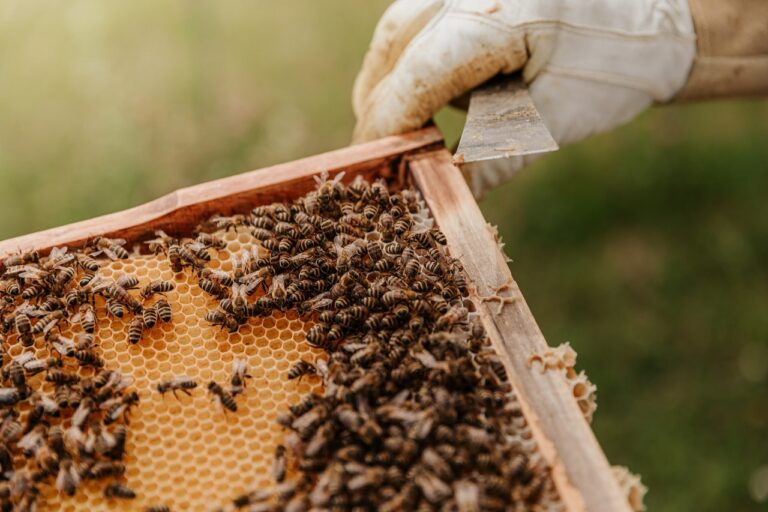It’s hard to believe, but there was a time when beekeeping was not as essential to humans. In fact, for most of our history, we have relied on other natural sources of pollination, such as wind and birds.
It wasn’t until the 1800s that honeybees started to be used for crop pollination in Europe. But today, we know bees are essential to our society and planet, and we need them now more than ever!
Table of Contents
Bees help pollinate at least 30% of all crops
Bees pollinate at least 30% of all crops, which means they are essential to the survival of our food system. These crops include many that humans eat directly, like apples and pumpkins. By making these foods grow and thrive, bees also play a critical role in maintaining an ecosystem that is healthy for other animals and plants.
The pollination provided by bees is a two-way street: bees benefit from the pollen they consume when visiting flowers, but the plants also get pollinated through bee activity.
Bees are essential to a stable food supply
You may not think about beekeeping when you buy your morning bagel or eat a slice of pizza, but you should. Just as bees are critical to the ecosystem, they’re also essential to the food supply. Bees pollinate more than 30% of crops grown in the United States. Without them, our diets would be very different—and not just because we’d have fewer options at the grocery store.
Bees help pollinate more than 100 different crops. These include apples (for cider), lemons and oranges (for juice), onions (to make pickles), avocados, carrots, and celery—even cucumber pickles! Pollination also helps produce almonds (a key ingredient in many candies) and blueberries; without it, those foods wouldn’t exist either.
When you consider how much people rely on these foods daily for their health and well-being–not to mention their enjoyment–it’s easy to see how beekeeping is vital for sustaining life on earth as we know it today.
Beekeeping is good for the economy
You may not have realized it, but bees are responsible for about $15 billion in pollination services each year. Since humans rely on plants to survive, bees are essential to our survival and well-being. Without bees and other pollinators, we would not be able to produce as much food as we do today.
In fact, every third bite of food we eat is thanks to animal pollination—and bees make up about 80 percent of all work done by these animals! So without honeybees and other pollinators like moths and butterflies, our diets would be very limited (and possibly nonexistent).
Bees are good for our health
You probably know that bees are good for the environment, but did you know they’re also great for human health?
You’ve probably heard that honey is a natural sweetener healthier than sugar and high fructose corn syrup. It’s easy to see that bee-pollinated crops like fruits, vegetables, nuts, and seeds are essential to a healthy diet as they provide essential nutrients such as vitamin C, folate, and magnesium. But bees do more than help with nutrition—they also boost our mental health!
Studies show that bee-pollinated flowers have therapeutic effects on depression because they contain chemicals called flavonoids which help improve memory function and reduce anxiety levels by calming nerve cells in the brain.
That means eating plant-based foods grown using bee-friendly methods (think organic farming) will benefit your physical health and improve your mental well-being too!
Bees help increase biodiversity, which helps people and the planet thrive
Bees are essential to people and the planet because they help increase biodiversity, which helps people and the planet thrive. We depend on bees to pollinate crops that feed us, but they are also responsible for many of the flowers in our gardens.
Biodiversity is the variety of life found in all its forms, from genes to ecosystems. It’s a measure of how much variation there is within a species or ecosystem, which makes it very important for biodiversity conservation efforts like those made by organizations like Conservation International. And when it comes to diversity, bees are key players.
Read also: Why is urban gardening essential to fight climate change












